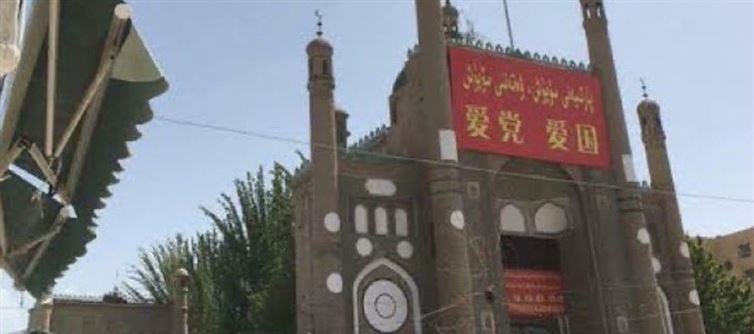
This was part of the so-called “Mosque Rectification” campaign, a policy aimed at regulating, modifying, or outright erasing religious spaces that the Chinese Communist party (CCP) deemed politically or ideologically threatening. Human Rights watch and the UN have consistently documented these efforts as elements of a larger program of repression that includes mass detentions, forced indoctrination, and curbs on religious expression among Uyghur Muslims.
Between 2016 and 2020, reports estimate that approximately 10,000 to 16,000 mosques were damaged or destroyed across China, with the vast majority located in the Xinjiang Uyghur Autonomous Region. Satellite imagery and on-the-ground investigations suggest that two-thirds of all mosques in the region have been affected—either by being completely demolished or altered to remove architectural features like minarets, domes, and Quranic calligraphy.
The campaign wasn’t limited to mosques: Sufi shrines, cemeteries, and other spiritual sites were also targeted in an effort to sever Uyghurs from their religious and ancestral roots. Similar patterns, though less widespread, have been observed in regions like Ningxia and Gansu, which are home to sizable Hui Muslim populations.
While Uyghur religious sites have borne the brunt of the crackdown, Christian communities have also been affected. According to the U.S. State Department and Pew Research Center, hundreds of churches—especially those that are unregistered or part of underground house church networks—have been shut down or demolished in provinces like Henan and Zhejiang.
Crosses have been forcibly removed, congregations have been surveilled, and clergy detained under charges of “illegal religious activity.” Yet, the scale and intensity of repression in Xinjiang remain unparalleled, leading numerous governments and human rights organizations to describe China's treatment of Uyghur Muslims as crimes against humanity, or even genocide. China, for its part, denies all allegations of religious persecution, insisting that its measures are part of a broader effort to counter terrorism and religious extremism.




 click and follow Indiaherald WhatsApp channel
click and follow Indiaherald WhatsApp channel